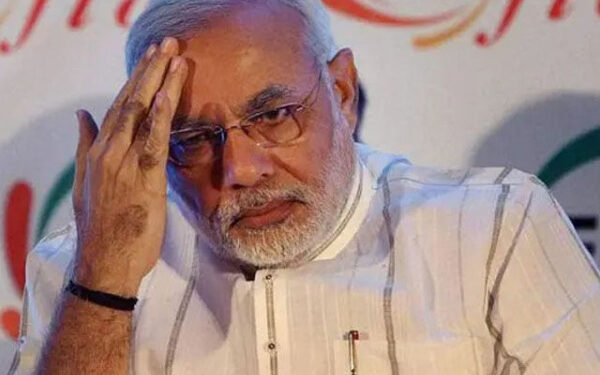India’s ambition to rise as a global superpower is facing serious internal and external challenges. Under the leadership of Prime Minister Narendra Modi and the influence of Hindutva-driven extremism, the country’s secular identity and democratic institutions are increasingly under threat. The combination of anti-Muslim sentiment, Hindu nationalist ideology, and a strategically flawed foreign policy is not only jeopardizing India’s internal harmony but also weakening its global standing.
Hindutva Politics and the Threat to Secular India
India has long prided itself on being the world’s largest democracy—a secular republic that accommodates a vast diversity of religions, languages, and ethnicities. However, since the rise of the Bharatiya Janata Party (BJP) under Narendra Modi, the Hindutva ideology has taken center stage, systematically undermining the secular and inclusive foundations of the Indian state.
The Modi government’s policies have fostered a climate of religious intolerance and communal division. From the controversial Citizenship Amendment Act (CAA) to the National Register of Citizens (NRC) and the abrogation of Article 370 in Jammu and Kashmir, the government has pursued policies that critics argue discriminate against Muslims and other minorities.
Such measures have led to widespread protests, increased polarization, and accusations that India is abandoning its secular values in favor of a majoritarian Hindu identity. According to reports by international human rights organizations and foreign media outlets, these developments are damaging India’s democratic credibility on the global stage.
Global Concerns over Modi’s Extremist Policies
An in-depth report published in Foreign Affairs, a leading American journal on international relations, has raised red flags about the authoritarian direction of Indian politics. The report argues that Modi’s undemocratic practices, including the suppression of dissent and manipulation of state institutions, are contributing to an erosion of India’s democratic framework.
The Foreign Affairs article notes that communal tensions have escalated significantly under the BJP government, and the Modi administration’s increasingly repressive tactics—such as using tax and law enforcement agencies to harass political opponents—are further weakening democratic checks and balances. The judiciary, Parliament, and civil society are under growing pressure, limiting their ability to act as counterweights to executive power.
Electoral Manipulation and the Myth of Popular Mandate
Despite repeated electoral victories, the BJP’s dominance is not necessarily a reflection of overwhelming public support. According to political analysts, the BJP has benefited from the structural flaws in India’s electoral system, such as the first-past-the-post mechanism, which often results in a parliamentary majority without a majority of the vote share.
This has allowed the BJP to push through controversial policies with minimal resistance, giving rise to fears that the democratic process is being manipulated to serve ideological ends rather than the broader interests of the Indian population. While the party projects an image of national unity and strength, the reality on the ground is increasing discontent, particularly among religious minorities, opposition parties, and regional communities.
Impact on Foreign Policy and Regional Stability
India’s ambitions to become a regional and global power are being undermined by contradictory foreign policy choices and internal instability. The Foreign Affairs report highlights how the Modi government’s desire to simultaneously contain China and challenge U.S. influence has led to conflicting diplomatic positions.
Despite its close trade ties with the United States and European nations, India has maintained warm relations with Russia and Iran, both of which are at odds with Western policies. This stance has often been justified by invoking “strategic autonomy,” yet it has limited India’s ability to align itself fully with global democratic coalitions.
Furthermore, India’s antagonistic posture toward neighboring countries, particularly Pakistan and Bangladesh, has exacerbated regional tensions. Anti-Muslim policies and nationalist rhetoric have damaged diplomatic relations, and unresolved conflicts in Kashmir and the Northeast risk spiraling into larger security crises.
Lagging Behind China Despite Economic Growth
While India’s GDP growth has averaged around 6 percent, its ambitions to match or surpass China’s economic and military capabilities remain a distant dream. China has outpaced India in almost every significant area—military modernization, technological advancement, infrastructure development, and global investment.
India’s ‘Make in India’ initiative, designed to boost manufacturing and reduce dependence on foreign imports, has suffered due to low investment in research and development, bureaucratic inefficiencies, and inconsistent policy implementation.
According to the Foreign Affairs report, India’s attempt to project itself as a rising power is hampered by its inability to reform its economic institutions, promote innovation, or deliver equitable growth to all segments of the population.
Erosion of Democratic Institutions and Rise of Authoritarianism
One of the gravest concerns cited by international observers is the consolidation of power under Modi, which has marginalized democratic institutions. The judiciary is under pressure, the press faces censorship, and civil society organizations that speak against the government risk being shut down or labeled as “anti-national.”
The use of investigative agencies, including the Enforcement Directorate and Central Bureau of Investigation, against political rivals has raised alarms about the politicization of state machinery.
Moreover, critics argue that India’s constitutional structure is being systematically altered to accommodate an extremist agenda, effectively turning state institutions into tools of political dominance rather than neutral arbiters of law and justice.
Polarization and Security Risks
The Hindutva-driven polarization within Indian society is not just a domestic issue; it has serious implications for internal security and regional stability. Analysts warn that the communal fault lines created by the Modi government could fuel insurgencies in volatile regions such as Kashmir and the Northeast.
Furthermore, rising intolerance and marginalization of minorities could lead to radicalization and violence, both from extremist Hindu groups and from disenfranchised Muslim communities. The long-term effects of this polarization may undermine national unity, making India more vulnerable to both domestic unrest and foreign interference.
India’s Diminishing Influence on the Global Stage
Despite its size and economic potential, India has failed to translate its growth into meaningful global influence. Its inconsistent foreign policies in the Middle East and East Asia, and its failure to build strategic partnerships beyond the Quad and BRICS, demonstrate a lack of coherent diplomatic vision.
As a result, India has not emerged as a dominant power even in South Asia, where China’s Belt and Road Initiative (BRI) and growing influence in countries like Nepal, Sri Lanka, and Bangladesh continue to outpace India’s outreach.
Conclusion: An Undemocratic India is a Weak India
India’s dream of becoming a world power is being undercut by its own internal contradictions. The rise of Hindutva nationalism, the erosion of democratic institutions, and an incoherent foreign policy have created a fragile foundation for its global aspirations.
As the Foreign Affairs report concludes, India’s strength lies in its diversity and democratic values, not in authoritarianism and religious majoritarianism. Unless India reverses course and recommits to secularism, rule of law, and institutional independence, it risks becoming an internally divided and internationally isolated nation—a far cry from the global power it hopes to become.

























